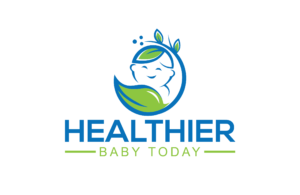First Day vitamins – Learn more with Healthier Baby Today! Childhood is a phase of continued physical growth and cognitive, social, and emotional development.
Specific vitamins and nutrients are essential to a child experiencing average growth and cognitive development.
However, kids will not be as bothered about their nutritional needs as their parents, ensuring a well-rounded diet with healthy foods.
Eating candies, sugary chocolates, and soft drinks can affect how your child’s body absorbs nutrients.
This is why many parents turn to vitamin or mineral supplements like first day vitamins to ensure their kids get the appropriate nutrition and all their nutrient needs.
It is recommended to introduce first day vitamins after seeking advice from your child’s doctor or pediatrician.
Table of Contents
Daily Dietary Requirements

In your child’s daily routine, let’s focus on the dietary requirements for whole grains, lean proteins, and other essential food groups.
Persuading your kid to a healthy diet can be an arduous job. Many kids are finicky eaters, and ensuring they get all their nutrient requirements from healthy foods can take time and effort.
Keeping this in mind, many corporations have specifically formulated child vitamins for getting these essential nutrients in your child’s diet.
Before determining if a daily multivitamin might be right for your child, let’s find out what vitamins are and why they are essential for your kids.
Starting your child on vitamins before kindergarten can have several potential benefits for their overall health and development.
1. Nutrient Support

Young children may not always have a balanced diet, and taking vitamins can help ensure they get essential nutrients like vitamins A, C, D and calcium for proper growth and development.
Vitamins are organic compounds of carbon found naturally in your food. These are the micro-molecules we get from our diet and are absorbed in the body to perform vital functions like growth, blood production, and proper brain development.
The deficiency of any specific vitamin may increase the risk of health problems, as our bodies require them to function properly.
Always consider the safety records, quality ingredients, dosage, and testing protocols before choosing multivitamins for children.
Some companies’ children’s vitamins are covered with sugar, but other brands, like first day vitamins, rely on fruits rather than creating sugar bombs camouflaged as vitamins.
2. Immune System Boost
Vitamins can help strengthen a child’s immune system, making them less susceptible to common illnesses like colds and flu.
Other multivitamins are made with artificial flavors and colors, but these pills are tough to swallow or chewable vitamins with multiple binders that make them difficult to digest.
The First Day vitamins gummies are designed so that even the pickiest eaters would love eating them.
3. Brain Development

Nutrients such as iron, omega-3 fatty acids, and B vitamins are crucial for brain development and cognitive function, especially during early childhood.
Vitamin B12 is essential for brain function. Its deficiency can cause poor memory function. It can also lead to neurological concerns like feeling tingling in your feet and hands and facing problems balancing yourself.
4. Healthy Bones
Vitamins D and calcium are essential for strong bones and teeth, which are still developing in young children.
Vitamin D helps build the body, strong bones, and teeth. Vitamin D deficiency in kids can cause Rickets, pains and fractures, weak muscles, and delayed motor development.
The finest sources of Vitamin D are tuna fish, salmon, fish oil, nuts, and certain dairy products. Vitamin D can help the body ingest calcium more quickly.
While you could give your child vitamins that contain Vitamin D, we recommend eating a well-balanced diet and getting the nutrients you need from food and supplements like first day vitamins.
5. Eye Health

Vitamins like A and C are essential for maintaining good vision, which is crucial for learning and development.
Vitamin A supports children’s eyesight, tissue repair, and average body growth and development. In developing countries, the deficiency of Vitamin A in kids is the main cause of night blindness.
The extended deficiency of Vitamin A can cause exophthalmos. Even children mildly deficient in Vitamin A can have bigger chances of respiratory diseases and a higher mortality rate from infectious diseases.
6. Energy Levels
Vitamin B plays a crucial role in transforming food into energy, which can help keep your child active and engaged throughout the day; B Vitamins are water-soluble vitamins.
Their absorption is simple; they go through your bloodstream and get excreted with urine.
There is the possibility of deficiency because they are eliminated regularly, and a regular supply of these nutrients is needed to maintain the proper levels.
These deficiencies can cause severe ailments like scurvy, spina bifida, and impaired growth patterns in children.
Healthy children must get adequate amounts of these vitamins daily; first day vitamins are a good supplement.
These vitamins are predominantly found in citrus fruits, potatoes, bell peppers, broccoli, spinach, strawberries, tomatoes, brussels sprouts, poultry, fish, milk, orange juice, and cheese.
7. Behavioral Benefits

Some studies suggest that specific vitamins and minerals positively impact behavior and mood in children.
Starting vitamins early can help prevent common nutritional deficiencies, especially if your child is a picky eater.
Vitamins A, Vitamin E, Vitamin D, Vitamin E, and Vitamin K are fat-soluble vitamins. These are consumed through a balanced diet with fats and oils and stored in the body tissues and the liver.
This kind of vitamin requires protein carriers. They are generally more lasting in the body, meaning a deficiency only occurs when vitamins are exhausted.
These important nutrients can be found in vegetarian or vegan foods like carrots, pumpkins, spinach, broccoli, kale, and other leafy vegetables.
They can also be found in foods like:
- Beef
- Eggs
- Liver
- Fatty fish
- Milk
- Shrimp
- Sweet potatoes
- Nuts
- Other fortified foods
Vitamins like A and E are essential for maintaining healthy skin and can help prevent common skin issues in children.
Starting a vitamin routine early can teach children the importance of caring for their health and instill healthy patterns that can last a lifetime.
Important Reasons to Start First Day Vitamins Before Kindergarten…
Knowing exactly what your child’s body needs can be difficult with all the marketing tactics in play. For those ages 2+, we recommend incorporating gluten-free, vegan, and gelatin-free ones like first day vitamins.
However, it’s crucial to consult with a pediatrician or healthcare provider before starting any vitamin supplements for your child.
They can assess your child’s specific nutritional needs and recommend the appropriate vitamins and dosages based on their diet and health status.
Additionally, with a balanced diet rich in fruits, vegetables, and lean proteins, whole grains should be the primary source of nutrients for children, with supplements used as a complement when necessary.
Your child’s body will depend on the vitamins they receive to develop correctly.


